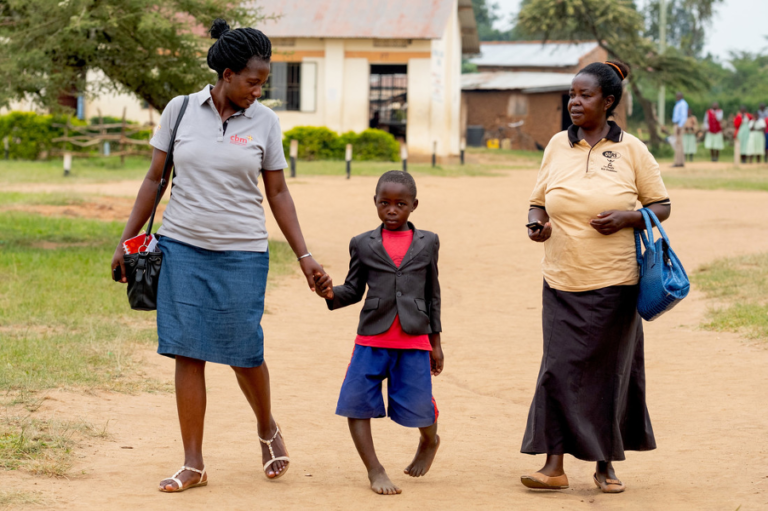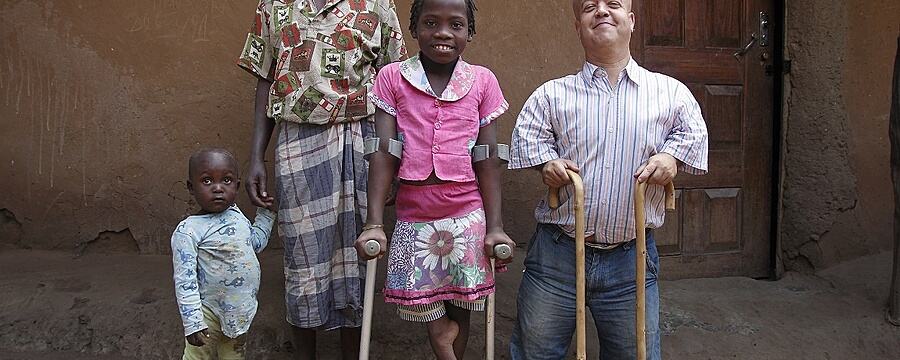Ethical Considerations in Disability Research and Safeguarding
Thousands of years of philosophy underpin ethical debate today, but luckily, we can simplify this down to four basic principles:
- Justice – this means, to quote Aristotle, to treat like cases alike and unalike cases unalike – be fair;
- Beneficence – this means, try to help people, do the right thing;
- Non-maleficence – this means, do no harm, don’t deceive people;
- Autonomy – this means respect for persons, supporting people’s choices, listening to them.
These four core principles apply to working with people with disabilities, just as they do to non-disabled people, and to children, just as they do to adults. The difference is, people with disabilities tend to have less power than non-disabled people, and children definitely have less power than adults, so great care is needed not to abuse those who have less power.
All research studies with identifiable human subjects require ethics permission, from a relevant local ethics committee. The committee will need to see the study protocol, the information sheets, consent forms and instruments (e.g. questionnaire or interview schedule) before granting permission. They will want to satisfy themselves that the research project is a scientifically valid study and that it will not harm the research participants in any way. It can take several months at least to obtain research ethics.
Avoiding harm

Stuart and his family, in Uganda. Copyright: CBM / argum / Einberger
Thinking about trying to avoid harm when conducting research
- Think about possible harms or benefits, and minimise any distress caused. For example, it may be traumatic to recall past difficulties. Can you support people afterwards or refer them to services which might support them?
- You might avoid doing research, when it’s already been done or it’s unnecessary. Do you have to do it with this group? Are you asking ‘need to know’ or ‘want to know’ questions? In some contexts, people with disabilities may be fed up of other people’s questions, especially if they never get to hear the results of the research.
- You need to avoid raising expectations of future benefits of the research, and this means you may need to manage expectations when they agree to participate in your study. Many people participate in research because they feel it will benefit them or their child in some way, even when you say that it will not directly help them.
- If there are no services available, then screening a population to find out who has particular service needs may not be ethical: it raises expectations which cannot be met. Or you need to ensure services are put in place: the slogan of “no survey without service” is worth remembering!
- The same people with disabilities often spend all their time participating in multiple studies, and they get sick of answering questions – try and find someone who has not been involved before.
- Will there be any reprisals or retribution to adults or children who might be involved? Are safeguarding protocols in place for vulnerable adults and children; Have a clear plan for responding to safety concerns. This is also touched upon briefly in the course in the section on ‘conducting research’ with children
Informed consent

Sakib with his mother after receiving a hearing aid. He has bilateral hearing impairment and is a client of CBM Partner Biratnagar Eye Hospital. Copyright: CBM / argum / Einberger
Thinking about autonomy takes us into the realm of informed consent.
- The participant should understand what the research is about. This means full information, but also communication that is accessible to people.
- When people have hearing impairment or visual impairment, it is simply about ensuring that their preferred means of communication – speech, sign language, braille, file – is available, that they have read, understood and remembered the study, and can give consent through written, oral or sign language.
- It is more complicated if they have intellectual disabilities or are children. You need to assess their capacity to understand consequences of the study and provide permission to participate. You should provide simplified versions of the information sheet and consent form which they can understand.
- If they still lack capacity to participate, then they cannot be included in most studies, and you will have to see if a caregiver can participate on their behalf.
- Children who can understand may still be too young to give legally valid consent, so you may have to rely on their caregivers giving permission for the child to participate. But you still need to have the child’s assent, because you need to try and ensure they understand why they are being asked to participate in the research.
- The participant is entitled to say no. Participation must be voluntary. The adult or child can withdraw at any stage. There should be no negative consequences either for participating, or for not participating. They should not be ‘bribed’ to participate.
- If potential participants are hard to involve but do not actually say ‘no’, it may be that they don’t want to take part but it is a culturally impolite to say no, especially to western researchers: remember the Swahili proverb “The one who chases you away doesn’t tell you to go”. Are you aware of children or adults’ dissent, and do you respect it?
- Often, research in non-western cultural contexts requires community consent, not just individual consent. Do what is expected locally – but also be aware of individuals who may want to take part, but are spoken for by others.
Privacy and confidentiality

Meeting of a savings group, supported by Cheshire CBR, Zambia. Copyright: CBM/Hayduk
Privacy and confidentiality relate to both autonomy and avoidance of harm.
- Some questions can be answered in focus groups, but often people don’t want to disclose private information to others, particularly if the information is sensitive in nature, so a one to one interview would be better for this type of information.
- People should ideally have privacy, for example when they are talking to an interviewer in a one to one interview, or filling in a survey with a enumerator. In some contexts, this can be really difficult.
- Others may want to speak for people with disabilities, but it’s best to hear from the person themselves.
- If the person is deaf and has an interpreter, they are likely to be a family member, possibly a child: is it appropriate to ask very personal questions?
- Find a place where no one is listening, possibly arrange a distraction activity for parents or other children, or interview parents in one place and children in another place, at the same time.
- Children may choose to be accompanied in the interview, for example by a friend or sibling: that is something you should plan for.
- People should not be identifiable in any publications from the research, so anonymise transcripts as soon as they are checked, removing not just names but also identifying details – for example, many impairments are rare, so it’s harder for people with disabilities to be anonymise if you include the exact diagnosis.
- However, children and adults should know that you have a moral duty to help them disclose abuse to relevant authorities, so tell them your duty of confidentiality does not mean ignoring stories of abuse (look at childethics.com for more advice about safeguarding).
Summary
The four principles do seem to be universal, even though there are cultural differences over the ranking and interpretation. For example, in the Global North, we tend to stress autonomy, and sometimes risk forgetting about justice. For example, questions of justice often apply to wider structures, such as economic barriers, which are harder to research and solve than individual-level solutions such as training. Ethical thinking in Asia or Africa may stress communities or families more than individuals. For example, the principle of Ubuntu is influential in Africa: as John Mbiti (1970) wrote, “I am, because we are, and since we are, therefore I am”.
The main difference with people with disabilities, assuming you have achieved full accessibility and reasonable accommodation, is that people with disabilities are often the objects of research. How can you enable them to be subjects? Can you involve people with disabilities’ organisations and people with disabilities as researchers? How can you learn from people with disabilities? Can you work in partnership? We need both the expertise of the academic, as well as the expertise that comes from lived experience.
When it comes to children, as with all research participants, the key word is trust: how can you act in a trustworthy way? How can you win the trust of your children who are participants, and how can you honour that trust? There is an additional step to explore in the course on conducting research with children.
Share this
Global Disability: Research and Evidence


Reach your personal and professional goals
Unlock access to hundreds of expert online courses and degrees from top universities and educators to gain accredited qualifications and professional CV-building certificates.
Join over 18 million learners to launch, switch or build upon your career, all at your own pace, across a wide range of topic areas.
Register to receive updates
-
Create an account to receive our newsletter, course recommendations and promotions.
Register for free







